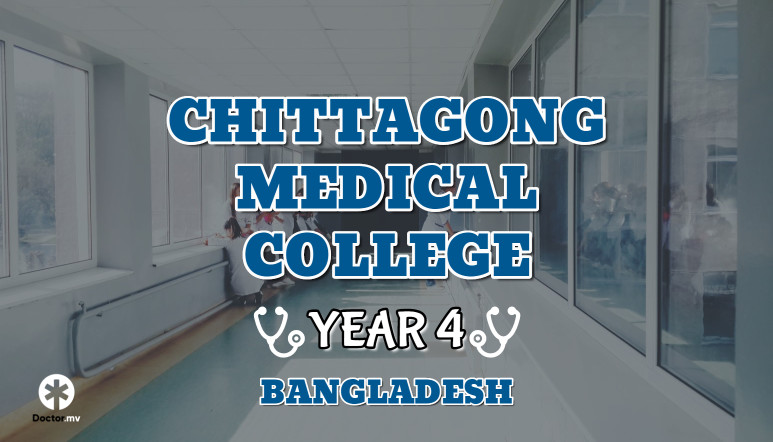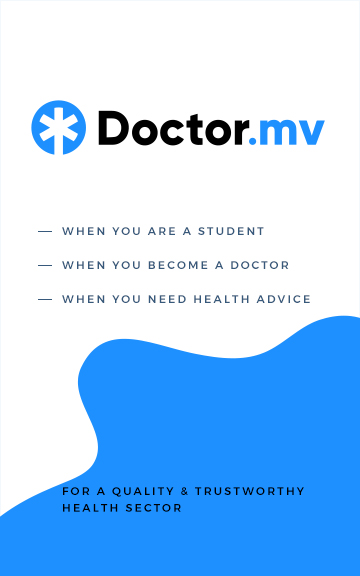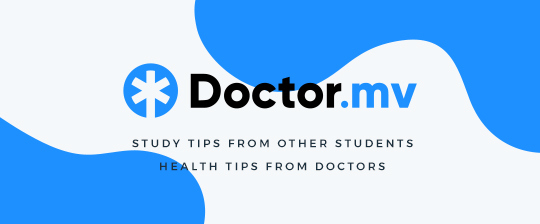I'm MOHAMED NAAIF and this is My Medical Student Life

Nabeel Ibrahim
Published on: 11/12/2018
Fourth Year Bangladesh Chittagong Medical College Mohamed NaaifUniversity
Chittagong Medical College
Current Year
Fourth
Medical Specialty Interested in
Cardiothoracic Surgery & Cardiology
Most Inspiring Person
My uncle, Dr. Saifullah
Single Quality that defines a great Doctor
Empathy
First of all, walk us through the step-by-step processes that you went through to get to where you are today?
I did my O'Levels in Dharumavantha School and my A'Levels in Villa International High School. During the 6 months I got after my O'Levels, I tutored students.
Upon graduation I worked in IGMH as a clinical assistant, first as a volunteer and later on as a paid clinical assistant. I actually got a lot of clinical experience working with the doctors during that time.
While I was working there, some of my colleagues joined Chittagong Medical College in Bangladesh, and that was when I first heard about the college. I talked with them and found out how their lives and studies were out here. The application process to the college was introduced to me by Stafford sir, who is a popular Biology teacher in the Maldives. He was someone that I could always go for advice.
In my O'Levels I got 1st place in the National Top 10, and throughout my A'Levels, I was aiming for the same achievement. I wanted to win the President's Scholarship to go study abroad. However, I got 2nd place and missed out on the opportunity. It was a let down and it affected me a lot. For the first few months after I got my result, I was stressed and pondering on how to find an opportunity to study Medicine abroad. It helped that I had friends who were going through the same thing, and I got a tremendous amount of support from my family as a well. The environment of the hospital made me stronger, and prepared me for Medical school.
When did you first realize you wanted to study medicine?
I decided to pursue Medicine during the 6-month gap after my O'Levels. Before I started my A'Levels, I wanted to make up my mind on a career path.
I weighed my options, talked to my teachers, family and friends, and got the opinion of my uncle who was studying Medicine at the time.
Take us through a typical study day.
A typical day for me starts at 5 am with my morning routine; prayer, studying and a run. I arrive to college at 8 am and between the lectures, ward postings and tutorials, I finish classes at 2:30 pm.
Afterwards, I go home and have lunch while watching watching a part of a movie or a TV series. I would then freshen up before starting my studies. We have class tests almost everyday, hence, I learn and revise for the next day. I remember to take breaks for prayers and to watch something. If I am too tired, I take a nap in the evening.
How did you feel when you first moved abroad away from family?
Coming here to Bangladesh, was the first time I was living away from my family. It was a bit hard to get settled down at first. But once I did after a couple of months, everything got okay.
The language and food were the only things I had some trouble adjusting to. My seniors and classmates helped me learn the language, and since the food in the Maldives is similar to food available here, it did not take much time to get adjusted to.
What is the hardest part of medical school?
It is the fact that Medical school is a lot of content in a short period of time. It is one of the longest courses for a Bachelor's Degree, but as a student you would not feel like you have the time. Especially considering the impact it would have not only you, but the patients you would be treating in the future. It is a very sobering thought.
Name your favorite medical text book.
Bailey & Love's Short Practice of Surgery.
A lot of people would have asked you why you're studying medicine. What is your response to them?
It's not just other people, at times you find yourself asking this question when you're going through a hard time. For some, they were set to become a doctor since childhood, and the reasons come later. For me, the reason I am doing Medicine is because it is one of the noblest professions. There is not a lot of glory in it. At the end of the day compared to the stress you go through as a student and a doctor, if you're doing this for the money and fame, it's not worth it. The reason you would want to do this is because you get to touch people's lives and help them in a way that others can't. The gratitude and feeling you get out of it both from within yourself and from the patients you treat is unbeatable.
What do you know now that you wish you knew when you first started medical school?
At first when I joined Medical school, I failed one of the first tests that I took. I adapted over time and improved.
Medical school examinations are different from our O'Level & A'Level examinations. In school we sit and write our exams for a set period of time. In Medical school, the written exam itself is different on how you are asked questions and how you are expected to answer. On top of that, there are practical exams and Vivas (oral exam). Vivas were especially difficult since you do not have time to think and if you spend too much time thinking you are considered as someone who do not know the answer.
The difference in how evaluations work in Medical School is something I wish I was more aware and prepared for when I first joined.
What do you think needs to change in the health industry of the Maldives today?
One of the biggest issues is that patients do not get the opportunity to consult a doctor as quickly as they would like. If you took a survey among the patients, I think 90% would name it as their biggest complaint. There is a big imbalance between the doctors available and the number of patients seeking medical services. For example, compared to the population, the number of specialists working in the Maldives is very small.
Plus, the doctors are centralized in one place, hence it is difficult for patients to travel from far away. If you look from the government or healthcare provider's perspective, the geography of the Maldives is one of the biggest difficulties to decentralizing the services.
We need a better or more organized referral and follow-up system, where every patient who is on a long term treatment for common conditions (such as diabetes and hyper tension), do not need to go to a specialist every time they need to renew their medications. In order to bring this change, there needs to be a change in both the mindset of the patient and the healthcare providers. Patients are sometimes hesitant to consult a general doctor and would prefer a specialist.
What I think could be a good solution, is to have reliable general practitioners distributed around the country in a more decentralized way who could communicate with a specialist if needed.
Finally, what is the one tip/advice you want to give to our readers?
For the people who are going into the medical field in the future, I would suggest that before you make this decision, ensure whether you really want to go through with this. Especially make sure you are not being pressurized into this career by family or society. I have seen my classmates and friends who would have not chosen this career if it were up to them. Considering how much of a struggle this is, I would advise anyone thinking of pursuing Medicine to really think about it and make sure whether you have the passion to go through this.
For the people in Medical school, my advice is to get as much clinical experience as possible. Unlike many other fields, book-smart is nothing if you can not apply it to a patient. This comes only though practice. Make the most of ward postings and check a patient's history or do some examinations whenever you get the time. This will get you the practice for both your exams and will help you later when you practice as a doctor.
To all Medical school students going through a difficult time, I feel you and I know what you are going though. I hope that you get through it. Keep faith and keep moving forward.
The My Medical Student Life series was created for the sole purpose of helping medical students and aspiring doctors on their journey to become a successful Maldivian Healthcare Professional. Have a suggestion, idea or question? Email us.



Leave a comment
0 Comments